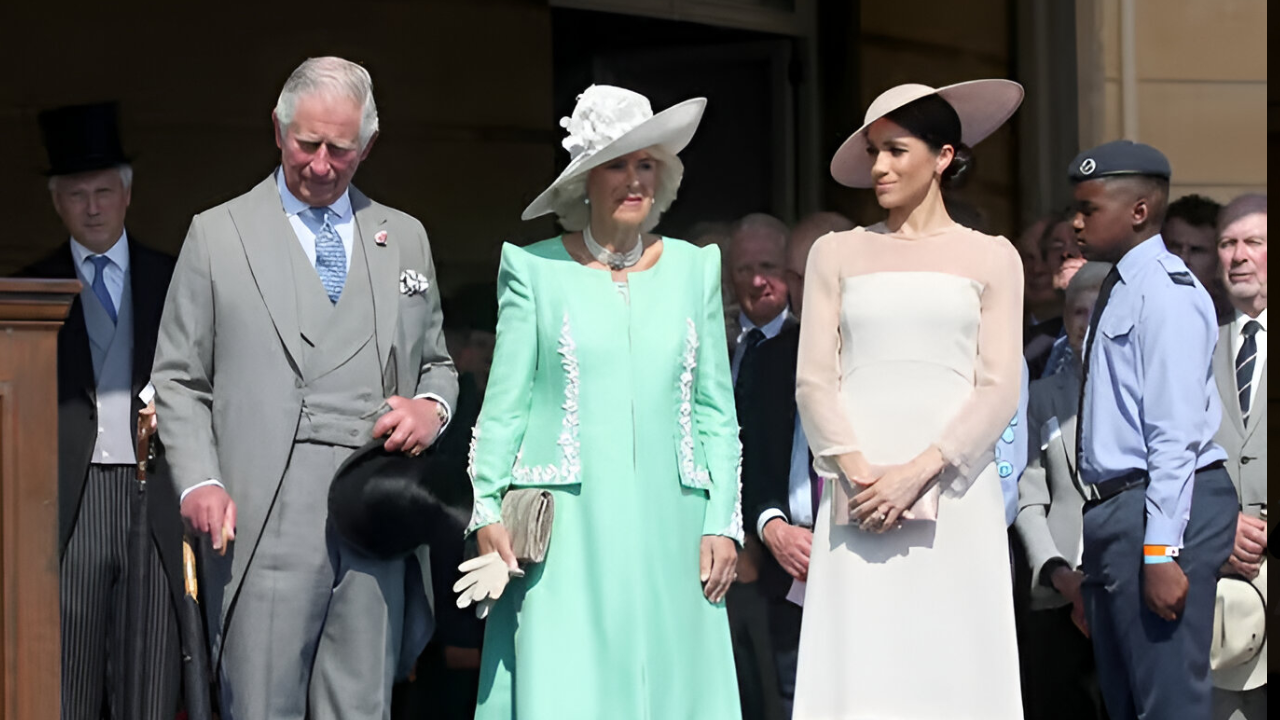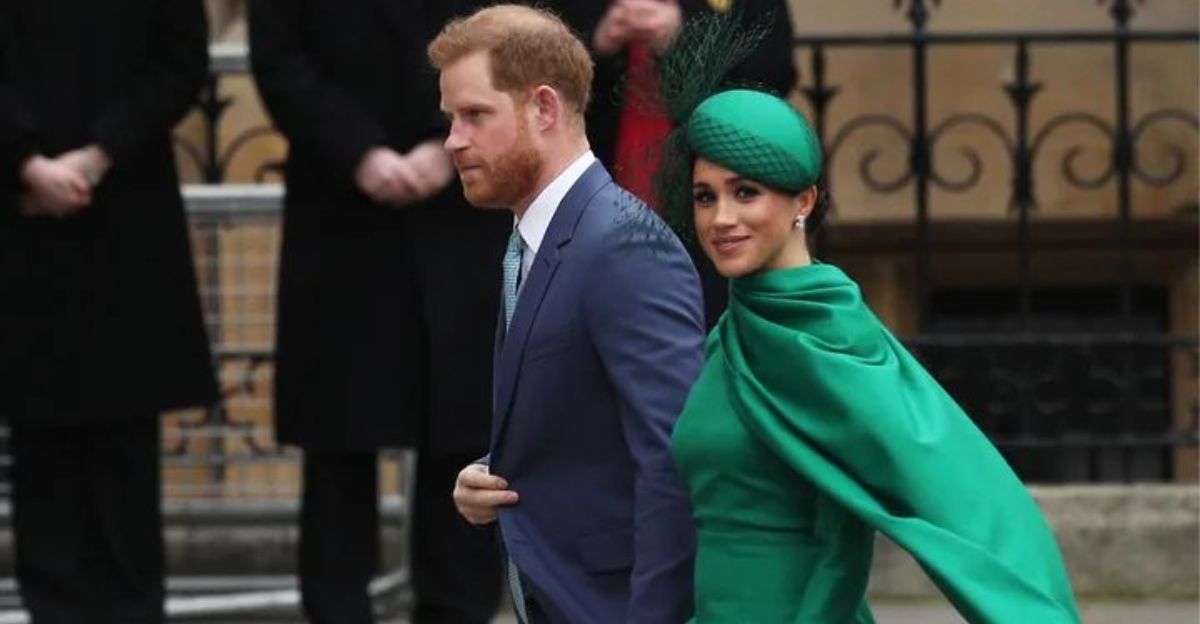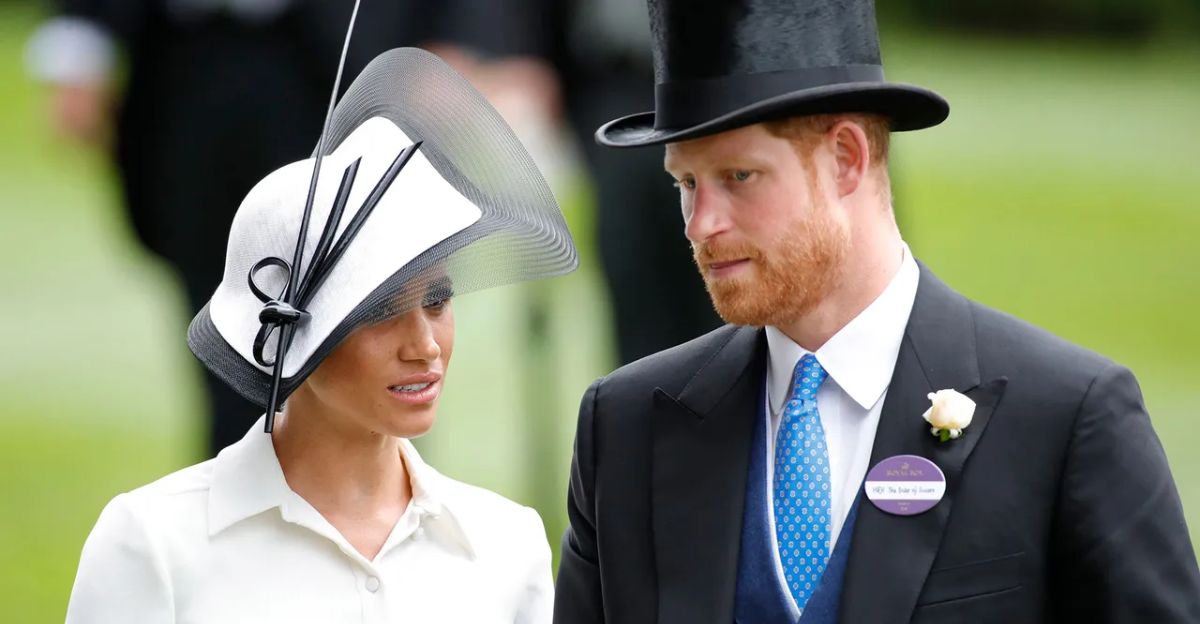
In the final years of her reign, Queen Elizabeth II privately voiced serious concerns about Meghan Markle’s impact on the royal family. According to royal biographer Sally Bedell Smith, the Queen described Prince Harry’s meeting with Meghan as a “complete catastrophe” during conversations at Balmoral Castle. Lady Elizabeth Anson, a close cousin and confidante, recalled that by early 2019, the Queen had already expressed reservations about the relationship. Despite these private misgivings, Elizabeth maintained a supportive public stance, affirming in official statements that the Sussexes would “always be much loved members” of her family.
Accounts from The Spectator indicate that in her final months, the Queen attributed much of the family’s rupture to Meghan Markle, expressing frustration over Meghan’s influence on Harry, especially regarding his 2020 decision to step back from senior royal duties. The Queen reportedly viewed the couple’s proposal for a “half-in, half-out” royal role as a threat to the monarchy’s stability and considered Meghan’s demands “cruel,” remaining unusually critical in private.
Queen Camilla’s Persistent Skepticism

Queen Camilla has consistently maintained a skeptical view of Meghan Markle since their earliest interactions. Royal author Tom Bower’s book “Revenge” documents Camilla’s early doubts, and sources suggest her concerns extend to the broader implications of any Sussexes’ return to royal life. Reports from May 2025 indicate Camilla perceives the Sussexes’ presence as potentially destabilizing to the monarchy’s image and remains firmly opposed to rapid or unconditional reconciliation efforts.
Camilla’s skepticism dates back to a July 2018 visit to Balmoral Castle, just two months after Harry and Meghan’s wedding, when she reportedly questioned aspects of their relationship and Meghan’s alignment with royal expectations. These early assessments have shaped Camilla’s ongoing stance and continue to influence her position on reconciliation.
King Charles and Prince Harry: Attempts at Engagement

In September 2025, King Charles met privately with Prince Harry at Clarence House for nearly an hour—their first face-to-face meeting in over nineteen months. This encounter followed a shorter meeting in February 2024. After the September meeting, sources reported that Charles expressed warmth toward his son, and Harry later described his father as “great” to reporters. While the meeting marked a significant attempt at engagement, substantial obstacles remained unresolved.
The royal family’s rift has persisted for approximately five years, beginning with Harry and Meghan’s January 2020 announcement to step back as senior royals. Media scrutiny and public controversy intensified around their 2018 wedding. Prince William and Harry were last seen together at Queen Elizabeth’s funeral in September 2022, with no confirmed direct communication since.
Institutional Barriers and Security Disputes
The Sussexes face institutional obstacles that go beyond personal relationships. In November 2025, palace sources confirmed that Harry and Meghan would not be invited to the British royal family’s planned participation in the United States’ 250th anniversary celebrations in 2026, citing their non-working royal status and established protocol for state occasions. These decisions highlight ongoing formal barriers to their integration into official royal functions.
Prince Harry has publicly expressed a desire for reconciliation, stating in a May 2025 BBC interview his openness to healing family ties and concern for his father’s health. However, efforts have been complicated by escalating security disputes. In October 2025, Harry formally appealed to the Home Office for government security funding without consulting King Charles or palace officials, triggering royal fury. Reports indicate Charles felt “betrayed” by this unilateral action, with sources describing the King as “furious” and “exhausted.”
Harry’s demands for reconciliation reportedly include full government security funding and formal royal treatment for Meghan, including HRH status and traditional protocols such as bows and curtsies. Palace officials have viewed these conditions as impractical and indicative of Harry’s reluctance to accept the couple’s current position.
Personal Boundaries and Fraternal Separation

Meghan Markle has reportedly set boundaries regarding Queen Camilla, stating she will not attend royal events if Camilla is present. Palace insiders interpret this as a practical barrier to reconciliation, complicating Harry’s efforts to rebuild ties with his father and the broader royal family.
Prince Harry’s relationship with Prince William remains severely strained, with no confirmed direct communication since Queen Elizabeth’s funeral—a separation spanning over three years. The brothers represent differing perspectives on royal duties, media engagement, and personal autonomy. Sources suggest reconciliation is “extremely remote” without significant mutual willingness to address underlying grievances.
Structural Obstacles and Future Prospects

Royal experts emphasize that deep structural obstacles remain to any meaningful reconciliation. Biographer Sally Bedell Smith notes that trust is the central issue, with palace sources indicating that King Charles and Prince William do not trust Harry and Meghan with confidential conversations. The combination of security disputes, treatment demands, institutional concerns, and personal boundaries creates multiple barriers to healing.
The optimism following the September meeting between Charles and Harry was quickly derailed by Harry’s October security appeal, which altered the trajectory of family relations. Reports suggest Charles now views Harry’s actions as a breach of trust, making near-term reconciliation unlikely.
As of November 2025, the royal family continues to navigate entrenched positions and complex institutional realities. King Charles has shown willingness to engage, but remains wary after recent events. Queen Camilla maintains her opposition to rapid reconciliation, and Prince William shows no inclination toward resolving the fraternal rift. The stakes remain high, with the monarchy’s stability and family unity hanging in the balance.